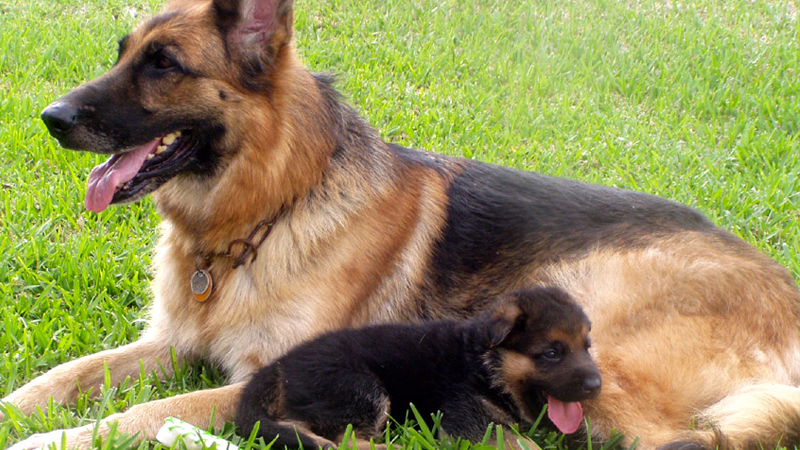 For someone that is extremely “ticklish”, I have often wondered if “possibly” this was a trait that some dogs do also have? It’s not a disease after all – and trust me, if you are ticklish it’s not funny when you are in that situation where you are ‘accidentally’ hit on that nerve spot that causes your entire body to tense up.
For someone that is extremely “ticklish”, I have often wondered if “possibly” this was a trait that some dogs do also have? It’s not a disease after all – and trust me, if you are ticklish it’s not funny when you are in that situation where you are ‘accidentally’ hit on that nerve spot that causes your entire body to tense up.
For example – treating yourself to that amazing relaxing back massage – and they hit that one spot on your back that causes you no pain, but it’s ticklish, and all that relaxation goes out the window. So …. I wondered – does this happen to dogs?? After all, I know how I react when it happens, and I do know that there are some dogs that suddenly change…. So I thought – Ummm… worth a trip to Mr Google to see what he tells me on this one?
So after turning to Mr Google, and so far everything I have read results to “No one really knows”. Most things point to yes – but nothing concrete. So, I thought I would put this out there and see what everyone else thinks.
Let’s start with the basics. There are two sides to being ticklish really. The enjoyable side, and the side that drives you completely insane. So let’s start with the positive first. Both of the GSD dogs I have had absolutely loved their tummy rub’s and it never failed to get their leg kicking as if they were trying to scratch an itch in mid air that simply wasn’t there. It caused them so much pleasure. If it wasn’t the scratching in mid air it was thumping the leg on the floor – so obviously a good sign. So moving to the technical side of the story – Mr Google tells me this is due to the nerves in the spinal cord being ‘pre-programmed’ and this reflex is beyond their control. Makes sense to me ….. so far at least.
So far I know dogs have sensitive areas that cause them great sensation and they loved these being touched… but does this change as they get older?
As a human I know my ‘ticklish’ spots changed as I grew up – and nerves do change after injury or wear and tear…. So I’m still convinced this is a possible cause as to why dogs change too.
My next question relates to dogs who change behaviour when being petted as they get older. Have you ever seen a dog all of a sudden not enjoy being touched in a particular spot anymore? We automatically think of pain – but when there is no pain point, I’m wondering if this is simply a ‘ticklish’ spot that they no longer enjoy. Or maybe the pressure being put on this is the difference? It would explain why they like some people to touch them, and not others?? Maybe??
I’m going to refer to my GSDR Chance for this one…. And I’m going to use his nick-name “Twinkle Toes” simply as it seems appropriate on this occassion. Chance was a cross bread but he had such cute feet, and was really light on them (like a Ballerina), hene the name. He never had an issue with me touching his feet. He actually enjoyed it, and would let me tickle the pads on his paws. However, there was no way he would allow any vet to ever go near them. Maybe it was a trust issue, or maybe he was ticklish on his feet? It always made me laugh when I was told how much he hated his feet being touched – and I witnessed it and they were not wrong, when it was anyone else but me??
Moving into the “not so positive” is the dog that turns on someone – and you don’t know why? Maybe it’s something that needs to be considered further – but I honestly don’t know the answer. But I have known of dogs that have changed suddenly, and with no apparent reason. Was that rub on the ear, head or back simply hitting a nerve at a point or with a pressure that was no longer enjoyable???
I know when you talk about being ticklish people automatically think laughter and joy – but it’s not always that. It can be nothing short of pure discomfort that comes and goes just as quickly.
For me it’s purely food for thought, and I personally believe it’s plausible and highly possible. And as a human, I know my “Ticklish” points changed over the years … so it makes sense that our four legged friends would as well. After all, no human has that same tolerance level – so why would we expect all our furr babies too. Knowing and accepting this possibility, and being aware of it might change a few things moving forward.
And just because I like to encourage your feedback – if you think being ticklish is funny, well… remember you have a Funnybone. I am sure you didn’t think it was so funny last time you accidentally hit that did you??


Leave A Comment
You must be logged in to post a comment.